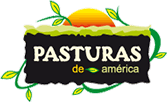Inicio » Biblioteca » Agricultural Expansion and Tropical Deforestation: Poverty, International Trade and Land Use
Agricultural Expansion and Tropical Deforestation: Poverty, International Trade and Land Use
Editorial:Earthscan Publications Ltd., London
Año: 2000
ISBN: 1 85383 665 6
A leading theory about the causes of tropical deforestation argues that international trade fuels rapid agricultural expansion, thus leading to deforestation. In Agricultural Expansion and Tropical Deforestation: Poverty, International Trade and Land Use (2000), Solon L. Barraclough and Krishna B. Ghimire investigate and question this theory. The contradictory evidence they present on the relationship between trade, agriculture, and deforestation suggests that such questioning is long overdue.
In light of evidence showing that deforestation varies over time and space, Barraclough and Ghimire use a case-study approach. They highlight Brazil, Guatemala, Cameroon, Malaysia, and China, all of which are experiencing intense deforestation. However, it is unclear why the authors chose these particular countries. In Table 2.6, they categorize developing countries according to whether the amount of agricultural land, forest land, and ""other land"" has increased or decreased. ("Other land" here includes land used for industrial, infrastructural, and urban development.) In that the authors are trying to understand a complex relationship, it would have made sense to choose a country from each category. They did not. Nor did they provide an adequate explanation of their "sampling procedure."
Case-study approaches work best when the cases are a representative sample and/or when the cases differ along one or two important axes. The selected case-study countries do not meet these criteria. Although the descriptive data in the areas studied are rich and informative, and the reader learns a lot about Brazil, Guatemala, Cameroon, Malaysia, and China, little information is provided about the general process of deforestation.

